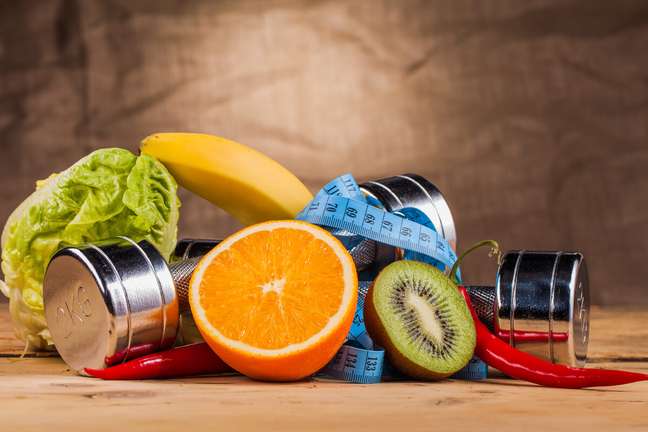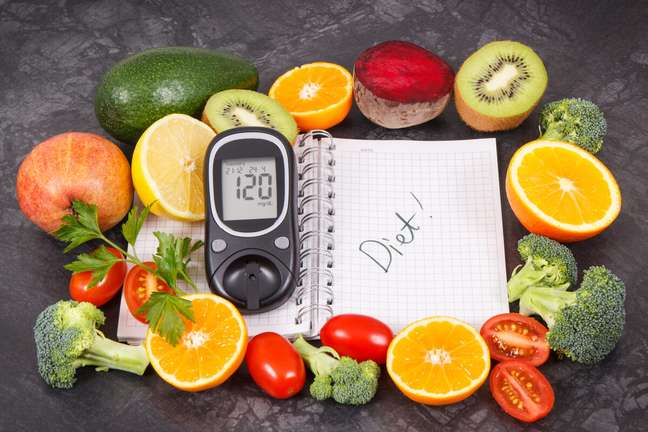The nutritionist clarifies doubts and gives advice for healthy weight loss
Weight loss is a topic that generates interest and, at the same time, doubts in many people. Plus, it’s a topic full of false promises to drop weight quickly, which can even put your health at risk. Therefore, Dr. Ana Paula Machado Lins, functional clinical nutritionist, clarifies some questions and gives tips for healthy weight loss.

1. Is eating too much protein bad for your health?
Truth. Any excess, sooner or later, will bring problems. the human kidney it has been designed to work perfectly for a period of our life, however the overload this time decreases. And excess protein is what leads to kidney overload.
2. Is the best diet the one that contains the least fat?
Truth. The best food and, consequently, the best diet is the one that, in the first place, respects the individuality and needs of each one. However, in general, we can say that the best diet is one in which fats are actually present in less quantity and of better quality, as well as a reduction in the consumption of sugar, salt and dairy products.
3. Do laxatives help you lose weight?
Myth. The use of laxatives can give a false sense of weight loss, as it stimulates increased bowel movement and makes the person feel light and empty momentarily. Besides the fact that this action does not lead to weight loss or the elimination of fats, it is highly harmful to health, in particular for the intestinal mucosa, which with continuous use is disfigured, hindering the absorption of nutrients and causing a series of health problems.
4. Does tying a plastic bag around the belly help reduce local fat?
Myth. They are fantasies that are transmitted from person to person, but which have no scientific basis.
5. IS better to go to eat a dessert at the end of a meal?
Truth. If you commit any extravagance in diet, let it be after being well fed so that when eating a dessert, for example, satiety helps not to move on and regrets later.
6. Does wholemeal bread make you fat?
Truth. Any food provides calories and, if it is in excess, can lead to weight gain, regardless of nutritional value. Wholemeal bread, on the other hand, if consumed in a food plan in adequate quantities per person – and it is usually two or, at the most, four slices a day -, it does not put on weight and significantly increases the nutritional quality of the diet, protecting against disease and helping intestinal functioning.

7. Can snacking during the day put your diet at risk?
Truth. In general, those who have a snack lose track of how much they eat and do not always choose healthy and low-calorie foods. By doing this, it ends up causing excessive weight gain, invariably. But, if the choice is correct, with healthy foods, at intervals of 3 in 3 hours and nutrients, such as fruits, dried apricots, Brazilian nuts (maximum 2 units per day), walnuts or almonds, do not lose the diet, it also helps!
8. Is skipping breakfast correct to save calories from a meal?
Myth. This is one of the most classic mistakes! Skipping a meal does not help balance the mechanism of hunger and satiety, does not properly nourish the body and, therefore, does not help the diet and weight control.
9. Does gelatin help fight cellulite?
Myth. This is an old idea. Gelatin doesn’t help fight cellulite, just as it doesn’t help fight sagging.
10. Is eating two types of carbohydrates together forbidden for dieters?
Myth. Two well-chosen carbohydrates together are beneficial, as they help satisfy hunger and take up important nutrients for the body. For example, rice and beans is a combination of carbohydrates which provides fiber, minerals and vitamins. The salad itself is made up of various carbohydrate-rich foods, which are also high in fiber, vitamins and minerals. That is, they are nutrients that make perfect sense in food and that need to be combined.
Source: Terra
Benjamin Smith is a fashion journalist and author at Gossipify, known for his coverage of the latest fashion trends and industry insights. He writes about clothing, shoes, accessories, and runway shows, providing in-depth analysis and unique perspectives. He’s respected for his ability to spot emerging designers and trends, and for providing practical fashion advice to readers.







